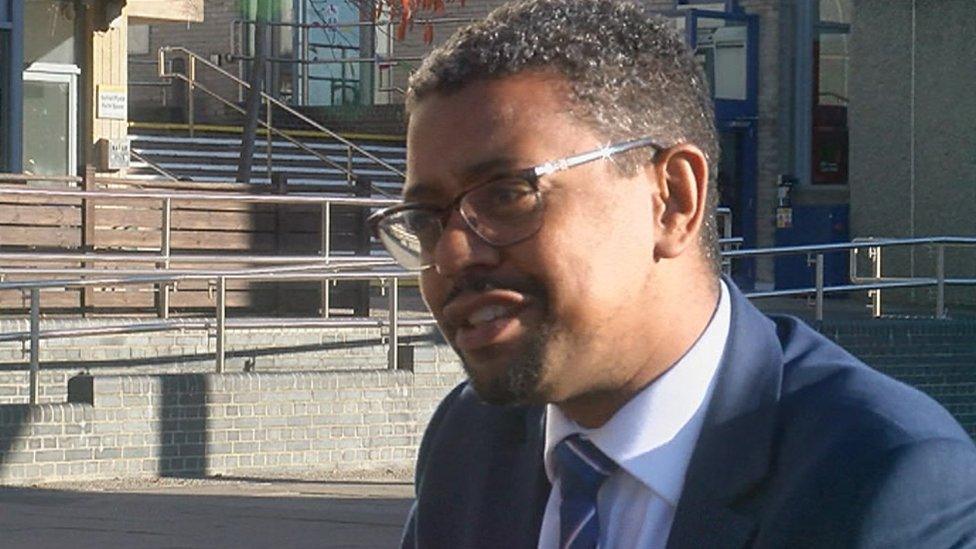Racism: Black minister 'mistaken for restaurant staff'
- Published
"We're still not in a position where we can say enough as been done"
One of Wales' most senior politicians said he is often asked if he is a member of staff in restaurants, because he is black.
"If I were a white man relatively smartly dressed going to a place like that, that isn't what people would ask," said Vaughan Gething.
The economy minister has contributed to a book, 100 Black Voices on Racism.
Cardiff-born actress Suzanne Packer, who helped edit the book, said it was in response to George Floyd's murder.
Mr Gething said: "People assuming that I'm a member of staff, not that I'm someone who's there to eat in a restaurant with my wife... it has happened on a regular-enough basis."
He became a familiar face on TV last year when he was the health minister and was in charge of handling the Welsh government's Covid response.
"Lots of people who look like me will have had a range of experiences in their life that we'll recognise as in common," he said.
His experiences will also affect the conversations he needs to have with his young son, he added.
"I want to have a normal conversation with my son.
"The problem is, it's a normal conversation for a parent like me to have with their child at some point that says the world isn't fair because of how you look.
"I don't think other people who don't ever have to have that conversation always appreciate that it's a necessary part of what you need to help your child with to get through life."
Ambition
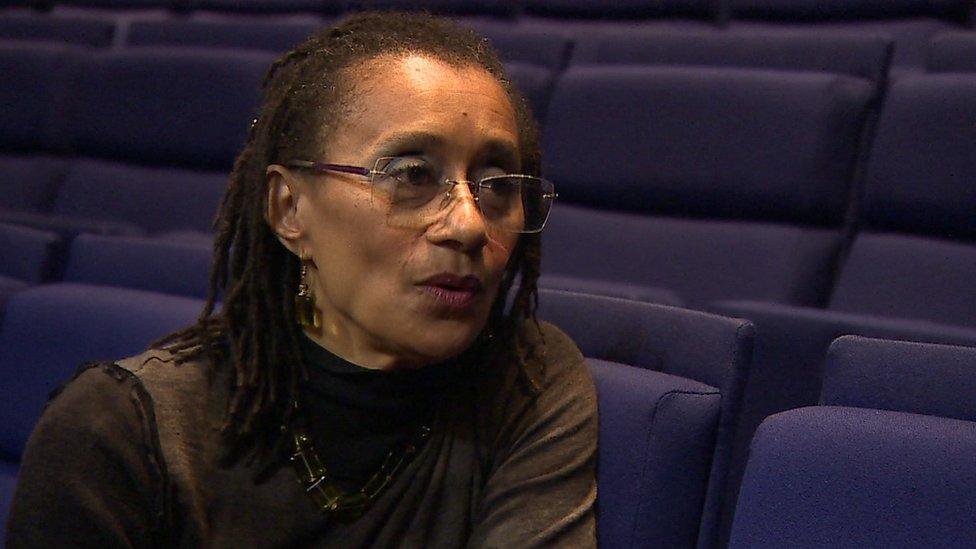
Suzanne Packer, a lecturer at Cardiff's Royal Welsh College of Music and Drama, wants to use her experiences of racism to help BAME students
Ms Packer, who was appeared in dramas including Casualty, Doctor Who and Keeping Faith, said she hoped the book would lead to people having "uncomfortable conversations" and show how contributors have thrived, despite racism.
"I allowed myself to feel that I didn't have to be as ambitious because there weren't enough roles for people who looked like me," she said.
"Who knows what opportunities I might have opened myself up to if I didn't have that mindset.
"I know what it's like to be out there and you're the only person of colour in the cast.
"I'm very open to students coming to me and navigating their way through what their fears might be.
"From that point of view I feel I have an important part to play."
'Be brave and call it out'
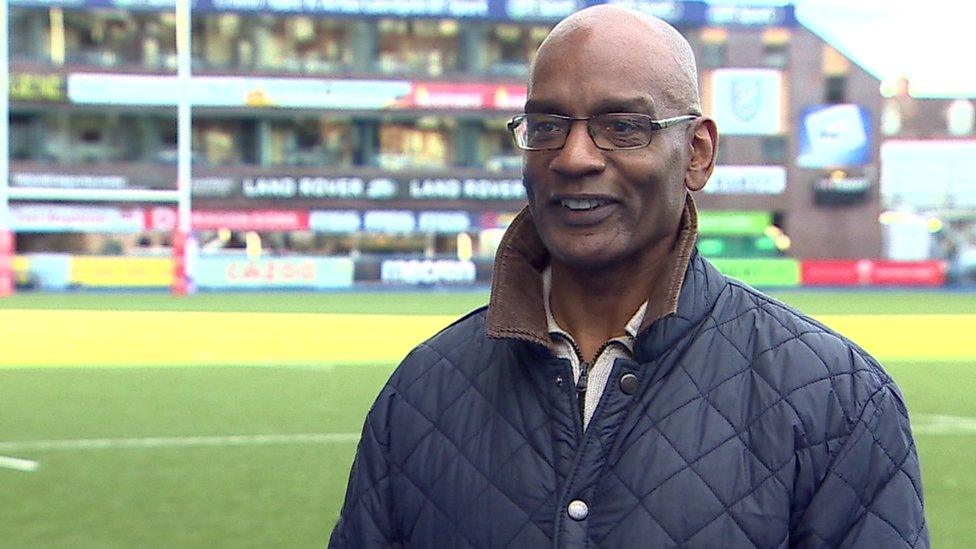
Nigel Walker, a former rugby player, said he was regularly subjected to racist abuse in school
Nigel Walker, a former Wales rugby player and Olympic athlete, said it was normal for him to be subjected to racism when he was in school in the 1970s.
"I could count the fingers on one hand the number of days that went by without me being abused or suffering some sort of name calling or bullying," said Mr Walker, performance director at the Welsh Rugby Union (WRU).
"When people are always saying things, negative things, it can go one of two ways.
"You can either feel cowed or not good enough and go into your own shell or it can galvanize you and you can say, 'right, I'm going to show I'm more than the colour of my skin, I can do it' and I'm certainly in the latter category."
He said he has always encouraged his children to "be brave and call it out - and don't let it stop you reaching for the stars".

WHAT'S THE BIG IDEA?: Food for the mind, and inspiration for the soul
THE ASIAN WELSH: How immigration from the Indian subcontinent transformed Welsh health, culture and the economy

- Published13 October 2021
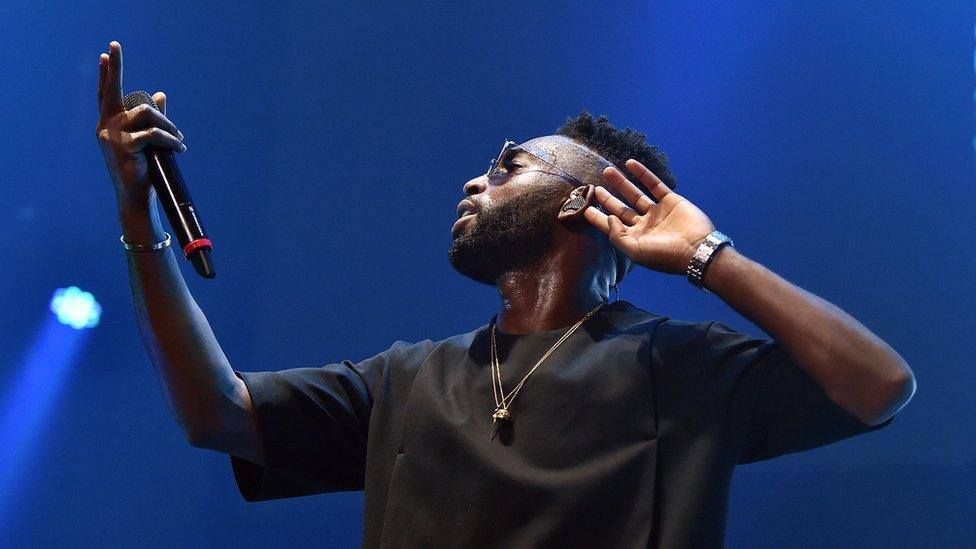
- Published20 June 2020
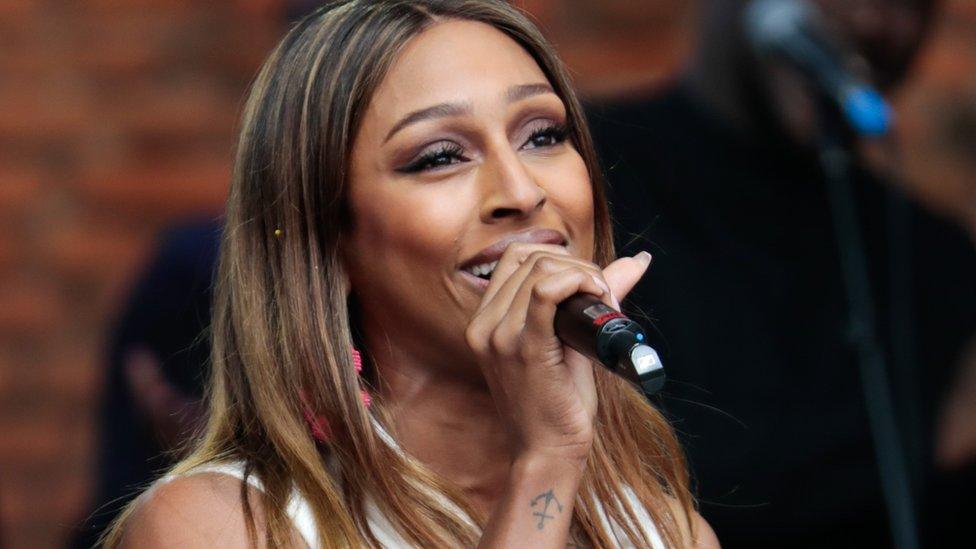
- Published27 November 2018
